Month 13:29, Week 4:7 (Shibi'i/Sukkot), Year:Day 5945:383 AM
2Exodus 8/40
Gregorian Calendar: Thursday 31 March 2022
Book of Revelation XVI
Between the Present & the Future III
Syriac Ignatius, Polycarp & the Patriarch-Apostles
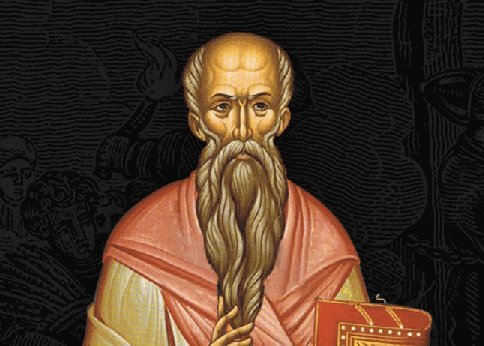
Continued from Part 16
Introduction
Shabbat shalom kol beit Yisra'el and Mishpachah and welcome back to the sixteenth part of our study on the Book of Revelation and to the third and final part of our sub-series, Between the Present and the Future in which we attempt to trace the theological and practical developments of the Messianic Community (Church) from the death of the last apostle, John, and onwards for approximately the next 20 years, a relatively short period of time but one in which there were some major changes. This will be the last of the Book of Revelation Series until after the Biblical New Year, which begins the day after tomorrow, and the spring Passover Season which begins about two weeks later on Aviv 14.
PART A - REVIEW OF THE PREVIOUS WEEK'S STUDY
Review of the Changes in Leadership Structure After the Apostles Died
The biggest change to the Messianic Community (Church) after the apostle John died was undoubtedly the changeover from apostolic to episcopal rule. Not only did we learn that overseers or bishops over areas containing a number of congregations led by pastors or presiding presbyters (elders) was the new spiritual order, but that:
- 1. The apostles had prepared this orderly system in advance so it wasn't haphazzard;
- 2. The bishops were to select the pastors of new daughter congregations by revelation;
- 3. The bishop's chief spiritual qualification was humility in love and truth;
- 4. The bishop, and indeed all officers, required the consent of the people to serve in their offices;
- 5. New bishops had to be appointed by extant bishops, maintaining an apostolic line of succession;
- 6. Authority in the Messianic Community was to be patriarchal;
- 7. There were to be no 'popes', 'cardinals' or other supra-episcopal offices; and
- 8. Errant ministers were to be disciplined, and if necessary, removed by properly constited ecclesiastical courts in order to maintain the dignity and honour of the divinely-appointed offices which cannot of themselves be impugned because Elohim (God) created them. The priesthood coup d'état by younger elements in the Corinthian Assembly was roundly condemned by Clement.
The Problem With Letters Ascribed to Ignatius
We also looked at the three known collections of Ignatian letters and concluded that:
- 1. The seven longer ones were forgeries from the 4th century and of no value other than for gaining insights into what particular political factions in the Community were pushing for at that time, and in particular, monarchical episcopy or absolute rule by bishops that would later evolve into Roman Catholic absolutism and exclusivity ('one-and-only-true-churchism');
- 2. The seven 'shorter' ones may themselves have perhaps been expanded or modified as well, possibly containing some original material but also showing evidence of less vigorous early attempts to push the political agenda of the blatantly propagandistic longer epistles - there are those who believe them to be forgeries from about AD 220-250;
- 3. The nine Pseudo-Ignatian letters were outright forgeries from the 4th-6th centuries and are of no value other than to reveal the difference between genuine revelation and a by then highly politicised and institutionalised church; [1] and
- 4. The three shortest Syriac (Aramaic) epistles which we needed to examine more closely today.
Review of Clement of Rome
We also studied extracts from the Epistle of Bishop Clement of Rome to the Corinthians (known in scholarly circles as '1 Clement' (whilst pointing out that '2 Clement' (or Pseudo-Clement) was almost certainly not written by Clement and is best designated as Pseudo-Clement) written in AD 96, the closest writing there is to the last of the apostles and therefore of immense theological importance.
The Two Extremes of Apostate Pressure
Finally we looked at:
- 1. The two extremes of theological apostacy in the immediate sub-apostolic period, hyper-grace lawlessness and legalism, that are commion in all ages of the Messianic Community (Church); and
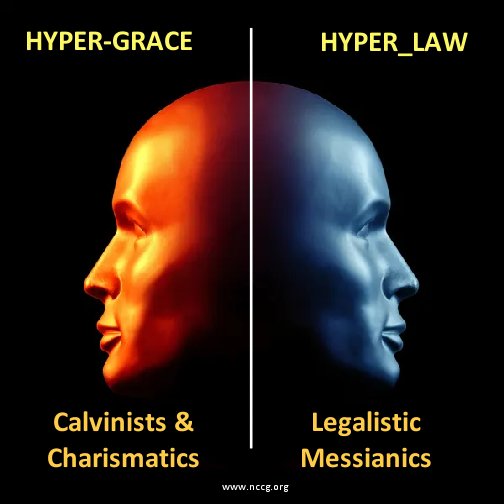
- 2. The four-front war the Messianic Community (Church) must constantly wage against the forces of destruction
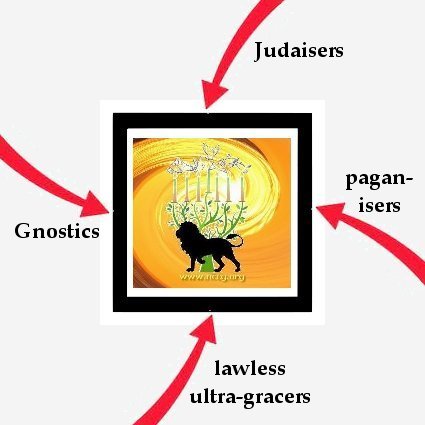
PART B - SYRIAC IGNATIUS & POLYCARP TO THE PHILIPPIANS
Agenda
Today we are going to:
- 1. Examine the three Syriac letters of Ignatius to the Ephesians, Romans and Bishop Polycarp;
- 2. Study the Letter of Polycarp to the Philippians; and
- 3. Examine the end-time Remnant restoration of patriarchs and apostles and to compare this with the original apostolic and succeeding episcopal system of the sub-apostolic fathers, governance by councils, and the like.
The William Cureton Theory
So let's begin with Syriac Ignatius as promised last week. Unfortunately the only translations into English I was able to find are in the old King James or Jacobean style [1] which many struggle with so I shall only review the contents in my own words. The thesis of William Cureton (1808-1864), Anglican canon of Westminster Abbey and famous for his translation work of Syriac Ignatius, is that the these epistles, discovered in the desert Monastery of St.Mary Deipara near Cairo, preserve for us Ignatius' original epistles and that they are a translation into that language of the Greek originals which are not now to be found. According to this theory they lack the corruptions of the 'shorter' and 'longer' versions in both Greek and Latin. Moreover, his thesis is that Ignatius only ever wrote to Polycarp, the Ephesians and Romans, so that the other four 'shorter' and 'longer' letters (the shorter version of Philadelphians which I quoted to you last time) are all forgeries written a couple of centuries after his death.
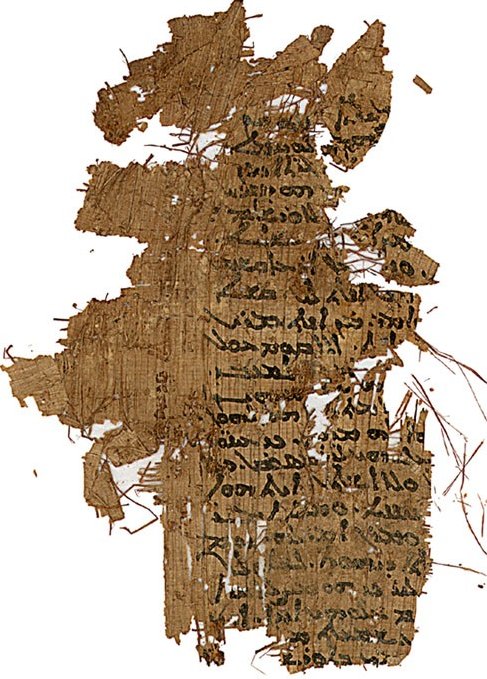
An Analysis of The Syriac Ignatian Epistles
In the Syriac letter to Polycarp, the Bishop of Smyrna is admonished to stand strongly against false teachings, take care of widows, treat slaves, males and females as equals but not to permit them to exhibit contemptuous behaviour, to flee from evil lusts, and for husbands to love their wives as Yah'shua (Jesus) loves His Bride, the Messianic Community (Church), all of which are pure Pauline teachings. But then the doctrine starts to deviate and we see evidence of later Catholic corruption as in the 'shorter' and 'longer' versions. For one, in the forgeries no one is allowed to marry without the Bishop's permission, to ensure that each marriage is "in the Lord, and not in lust". This is a dead give-away of later corruption for whilst it is certainly desirable that prospective husbands and wives get counsel from their spiritual elders, and to avoid marrying for the wrong reasons, we begin to see the much later Catholic preference for celibacy which Syriac Ignatius also commends. Paul specifically denounces as a "doctrine of demons" the right of anyone to forbid marriage (1 Tim.4:1-3). Rather, the New Testament makes appeal to conscience, not to monarchical episcopal diktats. This command alone, in my view, places the Syriac Epistles together with the 'shorter' and 'longer' versions. They are all corrupt even if there is an original core or source, which no longer exists, that survives in all the seven major versions, along with the Syriac versions, which makes them all authored by 'Pseudo-Ignatius'. Calvin was basically right to reject all of them.
Catholic Monarchical Episcopal Authoritarianism
I could go on. Catholic monarchical episcopal authoritarianism is clearly present in Syriac Polycarp as in the 'shorter' and 'longer' Greek and Latin documents. The author takes Paul's illustration of inner spiritual warfare as putting on the "full armour of Elohim (God)" in Ephesians 6:10-18 and applies it, instead, to the outward ordinance of baptism, a later teaching of 'orthodox' Christianity, showing that this writing is not a first century document. There are many churches that believe that physical water baptism literally washes away sin when administered by someone with the proper authority to baptise. Rather, the early Messianic Community (Church) taught that while physical water baptism is enjoined, it itself does not wash away sin, but is an outward covenantal sign in the prsence of witnesses to be true to what the outer ordinance signifies. It's a bit like an authentication photograph of what happened inside.
Syriac Ephesians
So I am not inclined to accept Cureton's thesis. The Syriac Letter of Ignatius to the Ephesians appears to be an extract of the 'shorter' and/or 'longer' versions and is very disjointed even if the language flows better than the Greek. Its doctrine is mostly sound until we come to the extract of Chapter XIX where we see the virginity of Mary becoming overly emphasised, and an obscure reference to the "mysteries of the shout" is made whose meaning is now lost to us. Some of the material in the last two chapters of the Syriac version is not to be found in any of the other versions of Polycarp either or indeed in any of the alleged letters of Polycarp. Other material is from 'Trallians' so what we have here is a hodgepodge with perhaps entirely new additions too. Untangling that mess is impossible.
Syriac Romans
The letter to the Romans is essentially about martyrdom and whilst it gives us historical insights into what believers faced at the hands of their persecutors at a later time, it, along with the Syriac and other so-called letters of Ignatius, are in my opinion of no value to us as evidence of what early 1st century Christianity consisted. That is not so say there wasn't an Ignatius (clearly there was) or that he didn't write anything (because he clearly did) but that the original is submereged in a sea of additions from different time periods. He most assuredly existed but if he did write anything, it has either not survived or been completely mutilated and pseudepigraphically expanded in all the fake material we have been examining, which is a great shame. With that we can put the Ignatian letters to one side and concentrate instead on what we know to be authentic, namely, Clement of Rome's letter to the Corinthians, which we discussed last week, and Polycarp's letter to the Philippians.
Biography of Polycarp
I'm now going to read out loud Polycarp's letter to the Philippians to you. He was a talmid (disciple) of the apostle John, a contemporary of Ignatius (who was his senior), and the teacher of Irenaeus from whom we get much information about the Bishop himself, who had contact with many who had seen Yah'shua the Messiah (Jesus Christ). Polycarp was martyred by the Romans in the mid-2nd century and his death was hudgely influential, even among the pagans. There is a book about his martyrdom which is inspirational and I think needs to be read by the last generation, many of whom will be facing martyrdoms of their own.
Introduction to Polycarp's Epistle
You will be impressed by how completely different in spirit his epistle is to the Ignatian letters and how similar in content it is to Paul, Peter, John and Clement, whom he quotes extensively, showing that he had an intimate acquaintance with most if not all of what would become the New Testament canonical works a century later. Though written as a letter, this document is also an amazing evangelistic tract, crammed full of essential Christian/Messianic doctrine. As a compendium of the faith is is both valuable and highly readable. The references I give were not in the original text, obviously, as the New Testament didn't even exist at the time, and the letters and gospels weren't yet divided into chapters and verses, not for at least another thousand years. There are some references to the letters of Ignatius that deal with themes that may point to the earliest, unredacted writings of Ignatius, assuming he made any. I hope you will be as blessed by this letter as I have been. So let's plunge in!
The Letter of Saint Polycarp,
Bishop of Smyrna, to the Philippians
Translated, and referenced, by Cyril C. Richardson,
with Messianic Terminology by CCMW

Polycarp and the presbyters (elders) with him, to the Assembly of Elohim (Church of God) that sojourns at Philippi; may mercy and peace be multiplied to you from Elohim (God) Almighty and Yah'shua the Messiah (Jesus Christ), our Saviour (1 Pet.1:1-2; Jude 2; 1 Clem., pref.; Mart.Poly., pref.).
1 I rejoice with you greatly in our Master (Phil.4:10; 2:17) Yah'shua the Messiah (Jesus Christ), in that you have welcomed the models of true Love (1 Jn.4:16; Ignatius, Rom. 6:2; 7:3) [4] and have helped on their way, (Ac.15:3) as opportunity was given you, those men who are bound in fetters which become the qodeshim (saints, set-apart ones) (Smyr.11:1) which are indeed the diadems of the true elect of Elohim (God) and of our Master. {2 And I also rejoice because the firm root of your faith, famous from the earliest times, (Ac.15:7; Col.1:6) still abides and bears fruit for our master Yah'shua the Messiah (Lord Jesus Christ), who endured for our sins even to face death, 'whom Elohim (God) raised up, having loosed the pangs of Hades' (Acts 2:24, Western text). 3 In him, 'though you have not seen him, you believe with inexpressible and exalted simcha (joy)' (1 Pet.1:8,12) -- joy that many have longed to experience -- knowing that 'you are saved by grace, not because of works,' (Eph.2:5,8-9) namely, by the will of Elohim (God) through Yah'shua the Messiah (Jesus Christ)}.
2 'Therefore, girding your loins, serve Elohim (God) in fear' and in emet (truth) (1 Pet.1:13; Eph.6:14; Ps.2:11; cp. 1 Clem.19:1), forsaking empty talkativeness and the erroneous teaching of the crowd (1:Tim.1:6; 1 Clem.9:1; 7:2; Ignat.Phil.1:1), 'believing on Him who raised our Master Yah'shua the Messiah (Lord Jesus Christ) from the dead and gave him glory' (1 Pet.1:21) and a throne on His right hand; 'to whom He subjected all things, whether in heaven or on earth' (Phil 3:21; 2:10; 1 Cor.15:28), whom 'everything that breathes' (Ps.150:6; Isa.57:16) serves, who will come as 'judge of the living and the dead' (Ac.10:42), whose blood Elohim (God) will require from those who disobey Him (Ezek.3:18; Lk.11:50-51). {2 For 'He who raised Him from the dead will raise us also' (2 Cor.4:14; 1 Cor.6:14; Rom.8:11), if we do His will and follow His mitzvot (commandments), and love what He loved (1 Jn.4:11-12), refraining from all wrongdoing, avarice, love of money, slander, and false witness; 'not returning evil for evil or abuse for abuse' (1 Pet.3:9), or blow for blow, or curse for curse; but rather remembering what the Master said when he taught: 3 'Judge not, that you be not judged; forgive, and you will be forgiven; be merciful, that you may be shown mercy; the measure you give will be the measure you get' (Mt.7:1, 2; Lk.6:36-38; cp.1 Clem.13:2); and 'blessed are the poor and those persecuted for righteousness' sake, for theirs is the Kingdom of Elohim (God)' (Lk.6:20; Mt.5:3,10)}.
3 I write these things about righteousness, brethren, not at my own instance, but because you first invited me to do so. {2 Certainly, neither I nor anyone like me can follow the wisdom of the blessed and glorious Paul, who, when he was present among you face to face with the generation of his time (Ac.16:12-13), taught you accurately and firmly 'the word of truth' (Eph.1:13). Also when absent he wrote you letters that will enable you, if you study them carefully (cp.1 Clem.45:2), to grow in the faith delivered to you} -- {3 'which is a mother of us all' (Gal.4:26) [5], accompanied by hope, and led by love to Elohim (God) and Christ and our neighbour (Col.1:4-5; cp.1 Thess.1:4 for the order: 'faith, love, hope'). For if anyone is occupied in these, he has fulfilled the mitsvah (commandment) of righteousness; for he who possesses love is far from all sin.} {4 But 'the love of money is the beginning of all evils' (1 Tim.6:10). Knowing, therefore, that 'we brought nothing into the world, and we cannot take anything out' (1 Tim.6:7; cp.Job 1:21), let us arm ourselves 'with the weapons of righteousness' (2 Cor.6:7), and let us first of all teach ourselves to live by the commandment of the Master.}
{2 Then you must teach your wives in the emunah (faith) delivered to them and in love and purity -- to cherish their own husbands (1 Clem.1:3) in all fidelity, and to love all others equally in all chastity, and to educate their children in the fear of Elohim (God) (1 Clem.21:6,8).} {3 And the widows should be discreet in their faith pledged to the Master, praying unceasingly on behalf of all (1 Tim.5:5; cp.1 Thess.5:17), refraining from all slander, gossip, false witness, love of money -- in fact, from evil of any kind -- knowing that they are Elohim's (God's) altar, that everything is examined for blemishes (1 Clem.41:2), and nothing escapes him whether of thoughts or sentiments (1 Clem.21:3), or any of 'the secrets of the heart' (1 Cor.14:25).} {5 Knowing, then, that 'Elohim (God) is not mocked' (Gal.6:7), we ought to live worthily of his mitzvah (commandment) and glory.}
{2 Likewise the deacons (shamashim, servants) should be blameless (cp.1 Tim.3:8-13) before His righteousness, as servants of Elohim (God) and Christ and not of men; not slanderers, or double-tongued, not lovers of money, temperate in all matters, compassionate, careful, living according to the emet (truth) of the Master, who became 'a servant of all' (Mk.9:35) [6]; to whom, if we are pleasing in the present æon (age), we shall also obtain the æon (age) to come, inasmuch as He promised to raise us from the dead. And if we bear our citizenship worthy of Him (1 Clem.21:1; cp.Phil.1:27; Col.1:10), 'we shall also reign with Him' (2 Tim.2:12; 1 Cor.4:8) -- provided, of course, that we have emunah (faith).}
{3 Similarly also the younger ones must be blameless in all things, especially taking thought of purity and bridling themselves from all evil. It is a fine thing to cut oneself off from the lusts that are in the world, for 'every passion of the flesh wages war against the Ruach (Spirit)' (1 Pet.2:11; Gal.5:17), and 'neither fornicators nor the effeminate nor homosexuals will inherit the Kingdom of Elohim (God)' (1 Cor.6:9-10), nor those who do perverse things. Wherefore it is necessary to refrain from all these things, and be obedient to the presbyters (elders) and deacons as unto Elohim (God) and Christ (cp.Mag.2; 6:1; 13:2; Trall.2:2; 3:1; Smyr.8:1; Poly.6:1). And the young women must live with blameless and pure conscience (1:Clem. 1:3).}
6 Also the presbyters (elders) must be compassionate, merciful to all, turning back those who have gone astray, looking after the sick (1 Clem.59:4), not neglecting widow (cp.Poly.4:1; Smyr.6:2) or orphan or one that is poor; but 'always taking thought for what is honourable in the sight of Elohim (God) and of men' (2 Cor.8:21; Rom.12:27; Prov.3:4), refraining from all anger, partiality, unjust judgment, keeping far from all love of money, not hastily believing evil of anyone, nor being severe in judgment (cp.1 Tim.5:19 ff), knowing that we all owe the debt of sin.} {2 If, then, we pray the Master to forgive us, we ourselves ought also to forgive (Mt.6:12,14-5); for we are before the eyes of the Master and Elohim (God), and 'everyone shall stand before the judgment seat of Christ and each of us shall give an account of himself' (Rom.14:10,2; cp.2 Cor.5:10)} {3 So then let us 'serve Him with fear and all reverence' (cp.ch.2:1; Ps.2:11; Heb.12:28), as He Himself has commanded, and also the apostles who preached the Besorah (Gopspel, Good News) to us and the nevi'im (prophets) who foretold (Ac.7:52; 1 Clem.17:1) the coming of the Master}.
Let us be zealous for that which is tov (good), refraining from occasions of scandal and from false brethren, and those who bear in hypocrisy the name of the Master, who deceive empty-headed people. {7 For 'whosoever does not confess that Yah'shua the Messiah (Jesus Christ) has come in the flesh is antichrist' (1 Jn.4:2-3; 2:22; 2 Jn.7.); and whosoever does not confess the testimony of the cross 'is of the devil' (1 Jn.3:8); and whosoever perverts the sayings of the Master (cp.1 Clem.53:1) to suit his own lusts and says there is neither resurrection nor judgment -- such a one is the first-born of Satan [7].} {2 Let us, therefore, forsake the vanity of the crowd and their false teachings cp.ch.2:1; 1 Clem.7:2; 9:1) and turn back to the davar (word) delivered to us from the beginning, 'watching unto prayer' (1 Pe.4:7) and continuing steadfast in fasting, beseeching fervently the all-seeing Elohim (God) (1 Clem. 55:6; 64:1) 'to lead us not into temptation' (Mt.6:13), even as the Master said, 'The ruach (spirit) indeed is willing, but the flesh is weak' (Mt.26:41; cp.Mk.14:38).}
8 Let us, then, hold steadfastly and unceasingly to our Hope (Col.1:27; 1 Tim.1:1; Mag.ch.11; Trall.pref.; ch.2:2) and to the Pledge (Eph.1:14; 2 Cor.1:22; 5:5) of our righteousness, that is, Messiah Yah'shua (Christ Jesus), 'who bore our sins in His own body on the tree, who committed no sin, neither was guile found on His lips' (1 Pet.2:24,22); but for our sakes He endured everything that we might live in Him. {2 Therefore let us be imitators of His patient endurance, and if we suffer for the sake of His name, let us glorify Him (1 Pet.4:15-16). For He set us this example (1 Pet.2:21; 1 Clem.16:17) in his own Person, and this is what we believed.}
9 Now I exhort all of you to be obedient to the word of righteousness (Heb.5:13) and to exercise all patient endurance, such as you have seen with your very eyes, not only in the blessed Ignatius and Zosimus and Rufus, but also in others who were of your membership, and in Paul himself and the rest of the apostles; {2 being persuaded that all these 'did not run in vain' (Phil.2:16; cp.Gal.2:2), but in emunah (faith) and righteousness, and that they are now in their deserved place (1 Clem.5:4,7) with the Master, in whose suffering they also shared. For they 'loved not this present world' (2 Tim..4:10), but Him who died on our behalf and was raised by Elohim (God) for our sakes (2 Cor.5:15; cp.1 Thess.5:10).}
10 Stand [8] firm, therefore, in these things and follow the example of the Master, 'steadfast and immovable' (1 Cor.15:58; Col.1:23) in the emunah (faith), 'loving the brotherhood' (1 Pet.2:17), 'cherishing one another' (1 Pet.3:8; Rom. 12:10), 'fellow companions in the emet (truth)' (3 Jn.8); in 'the gentleness of the Master preferring one another' (2 Cor.10:1; Rom.12:10) and despising no one. {2 'Whenever you are able to do a kindness, do not put it off' (Prov.3:28), because 'almsgiving frees from death' (Tobit 4:10 ff). All of you submit yourselves to one another (1 Pet.5:5.), having your manner of life above reproach from the heathen, so that you may receive praise for your good works and the Master may not be blasphemed on your account (1 Pet.2:12).} {3 'Woe to them, however, through whom the name of the Master is blasphemed' (Isa.52:5; Trall.8:2.). Therefore, all of you teach the sobriety in which you are yourselves living.}
11 I have been exceedingly grieved on account of Valens, who was sometime a presbyter (elder) among you, because he so forgot the office that was given him. I warn you, therefore, to refrain from the love of money and be pure and truthful. {2 'Shun evil of every kind' (1 Thess.5:22). For how shall he who cannot govern himself in these things teach another? (1 Tim.3:5) If anyone does not refrain from the love of money he will be defiled by idolatry (Col.3:5; Eph.5:5) and so be judged as if he were one of the heathen, 'who are ignorant of the judgment of Yahweh' (Jer.5:4). Or 'do we not know that the qodeshim (saints, set-apart ones) will judge the world,' as Paul teaches? (1 Cor.6:2) However, I have neither observed nor heard of any such thing among you, with whom blessed Paul laboured and who were his epistles in the beginning (Phil.4:15; cp.2 Cor.3:2; 1 Clem.47:2) [9]. Of you he was wont to boast in all the assemblies (churches) (Phil.2:16; 2 Thess.1:4) which at that time alone knew Elohim (God); for we did not as yet know Him. {4 I am, therefore, very grieved indeed for that man and his wife. 'May the Master grant them true repentance' (2 Tim.2:25; 1:18). But you, too, must be moderate in this matter; and 'do not consider such persons as enemies' (2 Thess.3:15), but reclaim them as suffering and straying members (1 Clem.59:4), in order that you may save the whole body of you (1 Clem.37:5). For in doing this you will edify yourselves (1 Thess.5:11).}
12 I am confident, indeed, that you are well versed in the sacred Scriptures and that nothing escapes you (1 Clem.53:1; cp.Ignat.Eph. 14:1) -- something not granted to me -- only, as it is said in these Scriptures, 'be angry but sin not' and 'let not the sun go down on your anger' (Ps.4:5, LXX; Eph.4:26). Blessed is he who remembers this. I believe it is so with you. {2 May Elohim (God) and the Father of our Master Yah'shua the Messiah (Lord Jesus Christ), and the eternal Cohen Gadol (High Priest) Himself, the Son of Elohim (God), Yah'shua the Messiah (Jesus Christ), build you up in emunah (faith) and emet (truth) and in all gentleness, without anger and in patient endurance, in long-suffering, forbearance, and purity; and give you a portion and share (Ac.8:21) among His qodeshim (saints, set-apart ones), and to us also along with you, and to all under heaven who are destined to believe (Col.1:23; cp.I:Tim.1:16) in our Master Yah'shua the M;essiah (Lord Jesus Christ) and in 'His Father who raised Him from the dead' (Gal.1:1; Col.2:12; 1 Pet.1:21)} {3 'Pray for all the qodeshim (saints, set-apart ones)' (Eph.6:18.). 'Pray also for emperors and magistrates and rulers' (1 Tim.2:1-2; cp.1 Clem., ch.61), and for 'those who persecute and hate you' (Mt.5:44; Lk.6:27), and for 'the enemies of the cross' (Phil.3:18), that your fruit may be manifest in all (1 Tim.4:15), so that you may be perfected in Him (Col.2:10; Jas.1:4).}
13 Both [10] you and Ignatius have written me that if anyone is leaving for Syria he should take your letter along too. I shall attend to this if I have a favourable opportunity -- either myself or one whom I shall send to represent you as well as me. {2 We are sending you the letters of Ignatius, those he addressed to us and any others we had by us, just as you requested. They are herewith appended to this letter. From them you can derive great benefit, for they are concerned with faith and patient endurance and all the edification pertaining to the Master. Of Ignatius himself and those who are with him, let us have any reliable information that you know.}
14 I am sending you this letter by Crescens, whom I recently commended to you and now commend him again. He has lived with us blamelessly, and I believe he will do so among you (cp.1 Clem.63:3). I also commend to you his sister, when she arrives among you. Farewell in the Master Yah'shua the Messiah (Lord Jesus Christ) in grace (Smyr., ch.13), both you and all who are yours. Amen.
Summing Up Clement and Polycarp
I think this letter speaks for itself. Put these together - Polycarp and Clement - and you have a pretty accurate overview of what very late 1st and very early 2nd century Christianity/Messianism looked like. This is what the seven congregations of Asia Minor in Revelation 2-3 talked about. This is what they believed. This is how they lived. These were the issues that mattered the most to them. As such, then, Polycarp's letter to the Philippians is an invaluable document with nothing controversial in it and in my view should be read alongside Paul's letter to the Philippians in the same way that Clement's letter to the Corinthians should be read alongside Paul's two known letters to the Corinthians. Wouldn't it be exciting if his other ones turned up sometime? So I think we now have a fairly dense, broad idea of what earliest Christianity/Messianism looked like. Clement and Polycarp fill out Revelation 2-3 and show us what has happened in the half century since Paul wrote his letters to these communities. And I can confidently say that Paul is vindicated and his critics silenced.
PART C - APOSTLES AND THE END-TIME REMNANT SET-UP
To Ordain or Not to Ordain Apostles
Which brings me to our final topic today and an unanswered question I raised last week. If the 12 apostles (minus Judas and plus Paul, who, I believe, may have replaced Matthias at some point), are the last of the apostles, their callings and offices never to be repeated because they alone were witnesses of the mortal Messiah who either taught them the message of salvation and of the Kingdom in the flesh (the final 11) or in resurrected form (12), then are denominations like the Pentecostals (who have dozens of apostles at any one time), Mormons (who have 15 apostles at any one time), the Worldwide Church of God (who have one apostle at any one time), the New Apostolic Church (who have 12 apostles at any one time), and others ... are they right in continuing to ordain 'apostles' today? And if not, what business do Messianic Evangelicals have in claiming that new apostles will be raised again right at the very end just before Christ returns?
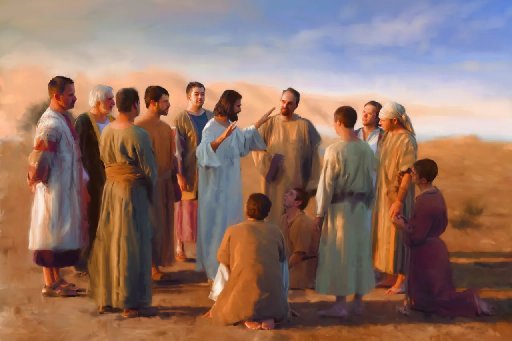 Several denominations ordain 12 apostles in imitation of the original 12
Several denominations ordain 12 apostles in imitation of the original 12
Personally Called and Taught by Yah'shua
Part of the problem we face is, as ever, in the definition of terms and in understanding what the biblical office of an 'apostle' is (or was). Some of the denominations I mentioned use the word 'apostle' with a Capital 'A', as in Apostle, like the Mormons and New Apostolic Church, who claim that the only reason Apostles ceased in the early church was because of apostacy and that Yahweh intended that apostles continue to be ordained, making a total of 12 at any one time, from one generation to another until Messiah returned. But as we have seen, talmidim (disciples) of the last Apostle (John) make is perfectly clear that the original Apostles never meant their office to continue after John but rather to be replaced by Bishops. The reason? Because the first Apostles had to have been personally called and taught by Christ Himself while He was alive, from the very beginning of His ministry, those who knew Him and could repeat unerringly all that He ever taught them, being promised that the Ruach (Spirit) would give them perfect recall. Matthias, who though he knew Yah'shua (Jesus) from the beginning of the ministry and qualified in all other respects, was called neither by Christ personally nor in a personal theophany by the Resurrected Messiah as was Paul.
The Selection of Matthias to Replace Judas
How was he selected? Two names were suggested after being whittled downm from a longer list and the final choice was made by the traditional method of the casting of lots!
"'And in those days Peter stood up in the midst of the talmidim (disciples) (altogether the number of names was about a hundred and twenty), and said, Men and brethren, this Scripture had to be fulfilled, which the Ruach haQodesh (Holy Spirit) spoke before by the mouth of David concerning Judas, who became a guide to those who arrested Yah'shua (Jesus); for he was numbered with us and obtained a part in this ministry.' (Now this man purchased a field with the wages of iniquity; and falling headlong, he burst open in the middle and all his entrails gushed out. And it became known to all those dwelling in Jerusalem; so that field is called in their own language, Akel Dama, that is, Field of Blood.) For it is written in the book of Psalms:
'Let his dwelling place be desolate,
and let no one live in it';
and,
'Let another take his office.'
"'Therefore, of these men who have accompanied us all the time that the Master Yah'shua (Lord Jesus) went in and out among us, beginning from the baptism of John to that day when He was taken up from us, one of these must become a witness with us of His resurrection.' And they proposed two: Joseph called Barsabas, who was surnamed Justus, and Matthias. And they prayed and said, 'You, O Master, who know the hearts of all, show which of these two You have chosen to take part in this ministry and apostleship from which Judas by transgression fell, that he might go to his own place.' And they cast their lots, and the lot fell on Matthias. And he was numbered with the eleven apostles" (Acts 1:15-26, NKJV).
The Unknown Life and Works of the Apostle Matthias
After this event we never hear about Matthias again. Scriptorians and theologians have argued as to who he was and many identities have been proposed from Zaccheus and Nathaniel to Bartholemew and Matthew (a Gnostic tradition), the ex-tax collector and writer of the Gospel of the same name. Some suggest he was one of the 70 or 72 (Lk.10:1) but there are no lists anywhere of who they originally comprised. As always, there are apocryphal or fake texts and one, The Acts of Andrew and Matthias, speaks of Matthias' ministry and a tradition about his missionary journey to an unnamed land of cannibals. Later post-apostolic church fathers give conflicting accounts of who he was and what he did which usually means they were basing their 'knowledge' on tradition or guesswork. We don't even know what 'casting lots' consisted of, whether the talmidim (disciples) just voted on the two choices or wrote the names of the two men on two stones, respectively, and put them in a pot and someone drew one of the stones out. Now it's true that lots were cast in the Tanakh (Old Testament) as a means of getting answers from Yahweh (e.g. 1 Sam.14:24,27) and Yahweh can use whatever method He chooses to make His will known but this was not a method that had been used in a very long time as normally the Urim & Thummim, the High Priest's breastplate, were used and that particular item had become lost, along with the Ark of the Covenant, centuries before.
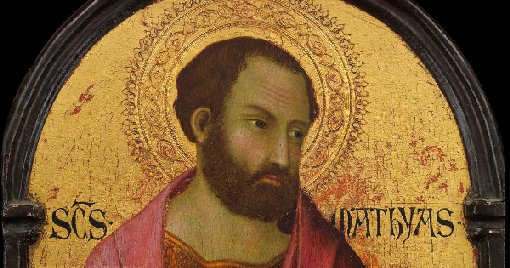 Nothing is known about the life and ministry of the apostle Matthias
Nothing is known about the life and ministry of the apostle Matthias
Apostles Replaced by Bishops
There are those who claim that Matthias' calling was a mistake and that that was the reason Paul replaced him. However, Peter makes it clear that this was no mistake and actually fulfilled prophecy. At the very least it was a stop-gap choice made on the basis of an old tradition. So there must be some other explanation (maybe Matthias died or was told in a revelation to step down when Paul was called, taught and stepped up to his calling) but this is shere guesswork so we'll leave that question unanswered. One thing is for sure - the final 12, with or without Matthias or Paul, were not intended to be replaced. When they died out by the end of the first century, that was it. No more Apostles, only Bishops, the new leadership order ordained by the original Apostles and fully operational while they were yet alive.
The Twelve Tribes Have Yet to Be Gathered
So why don't we just leave it at that and become 'episcopalian', which is what we have effectively been these last 35 years or so? (We have had two bishops in our history, one in India and one in East Africa). Because of prophecies in the Tanakh (Old Testament) about the restoration and gathering of the Twelve Tribes of Israel in the latter days as distint groups or units, something which has not yet happened and which has not been fulfilled by the creation of the non-messianic Israeli Republic. Neither the Pentecostals, Mormons, New Apostolic Church nor other denominations whose highest office is the 'apostle' are divided up into Twelve Tribes of Israel properly related to one another under the leadership of a navi (prophet) like Moses, remembering that Yah'shua the Messiah (Jesus Christ) is the latter-day navi (prophet) like Moses in the heavenlies as prophesied in the Tanakh (Old Testament). The Book of Revelation specifically shows that representatives from each of these gathered Twelve Tribes, the remnant of the 144,000 overcomers, will be sent out as special witnesses.
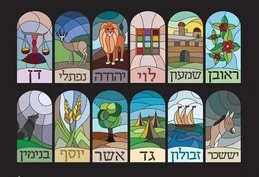 The yet-to-be-gathered 12 tribes of Messianic Israel
The yet-to-be-gathered 12 tribes of Messianic Israel
The Leading End Time Josephite and Benjamite Tribes
Because this could be the basis of a whole series of sermons we cannot possibly cover all the material inherent in this topic and so I must be brief. Each of the 12 tribes had a tribal head and the head of all the tribes was Joseph-Ephraim who with two others of Joseph-Manasseh and Benjamin, constituted the equivalent of the 'inner circle' of the Apostles, Peter, James and John:
- 1. Joseph-Ephraim (Great Britain and colonial offshoots);
- 2. Joseph-Manasseh (USA - West; Germany, Austria, etc. - East); and
- 3. Benjamin (Norway).
The First Apostles Were Mostly Benjamites
Indeed, as I explain elsewhere, most of the Apostles were Benjamites from Two-Tribed Judea consisting (after the division of Judah from northern Israel) of Judah and Benjamin. Paul specifically identifies himself as Benjamite (Rom.11:1; Phil.3:5). If you want to pursue the Benjamin connection in the last-days, and want to understand Norway's rôle, please see the two important articles:
Who the End-Time Apostles are Not
The Gathering of the Twelve Tribes and the Last Exodus that we speak so much of in this ministry (because it's one of our callings and is about to enter it's nineth year) are supernatural events led by sh'lichim (apostles) and nevi'im (prophets). These are not the counterfeit 'apostles' of Mormonism or the New Apostolic Church who do not remotely fulfil the criteria of biblical sh'lichim and they are not the 'apostles' of Pentecostals who are really no more than souped-up evangelists. Nor are they the 'apostles' found in some messianic groups whose only claim to fame is their supposed teaching ability and some unproven (and unprovable) claim to have been given the authority to organise a Beit Din or 'House of Judgment'. Those calling themselves 'apostles' are only playing at the rôle (see our Apostles website).
 False apostles abound
False apostles abound
Fakes and Souped-Up Evangelists
Even we in our vanity once imagined some of us were fully-fledged 'apostles' and whilst we have certainly enjoyed some of the giftings and callings of the first apostles we have not, to date, fulfilled all the criteria and nor has anyone else upon the face of the whole earth alive today or since the apostle John died. Now it is true the the word 'apostle' literally means 'one who is sent out' to witness but the name in itself, if taken literally, is so vague that it could equally apply to any born-again believer. You could call yourself an 'apostle' (with a lower case 'a') if you witness of Christ, are a missionary or an evangelist, but that would only create confusion in the minds of Bible students. Call yourself an 'apostle' and people will immediately (and understandably...and wrongly) associate you with the Apostles in the New Testament which none of us are nor ever can be. So the title should not be used. People who use the title need to be called out for their own sakes and for the sakes of those looking up to them as modern-day equivalents to Peter, James, John and the others of old, which they aren't. Yahweh is not so liberal that we can just choose to be what we fancy and we should be very careful whom we follow and listen to.
Will the True Apostles Please Stand Up
What do we in NCAY teach, then, about latter-day apostles? Who are they? How will we recognise them? They will be the patriarchal heads of each of the gathering and fully gathered Remnant of the 144,000, the Twelve Tribes of Messianic Israel. They will not be unbelieving or even believing 'Jews' in the modern sense of the word. How, then, will they be known? They will be Elijah nevi'im (prophets), seers, and revelators, they will cast out demons for real (not the modern charismatic theatrics), proclaim the fullness of the Besorah (Gospel) and the Kingdom message, authentically bear the New Covenant Melchizedek Priesthood, teach the fullness of the true New Covenant Torah doctrine and lifestyle, heal the sick, raise the dead, be endowed with the Ministry of Reconciliation which is the Spirit of Elijah, speak in true tongues (i.e. speak modern languages supernaturally) when needed for evangelism), raise the dead, transmaterialise and move around the earth supernaturally like the Apostle Philip, move and split mountains when needed during the Final Exodus, walk on and part water when needed during the Final Exodus, practice Holy Echad Marriage and - most importantly of all - have physically met, and received their commission from, the resurrected Yah'shua (Jesus) face-to-face in the presence of witnesses (not just a 'vision' or a 'voice' heard) ... to name but a few of their qualifications for the completion of the Final Gathering and Second Exodus. They will not be anything like the bogus ministers bearing a rank they are not entitled to which you may have encountered today.
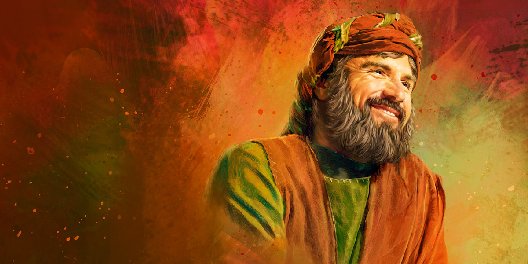 True apostles have always had very specific character traits and giftings
True apostles have always had very specific character traits and giftings
Of apostles and Apostles
When the original Twelve Apostles led by Peter, James and John, return to the earth with the returning Messiah for the Millennial Reign, then the end-time 12 patriarch-apostles will step aside and hand over their authority to the New Testament Twelve. Am I one of the end-time Apostles with a capital 'A'? No, clearly not thus far, since I can only claim to have possesed or currently possess some of the apostolic giftings which I have needed for the restoration work I have been called to do. Rather, I have been called to prepare the way for these men, a 'John the Baptist' figure at best. When we have used the word 'apostle' in the past, and still use it, to speak of some of our members, it has always been used in a limited, incomplete sense, as apostles with a small 'a', as foreshadowings of the fullness yet to come. To know more of what we have been told about end-time Apostles, see the Olive Branch and in particular chapter 149.
Conclusion
I think that's all I want to say about this subject for now as this is mainly for the benefit of the new people coming up to this work and as a refresher for some of the older ones who may have forgotten our original calling. This is, appropriately, our 333rd sermon braodcast and with it we not only end the current biblical year (tomorrow) but also the old preparatory ministry which has largely been one of restoration and waiting. The day after tomorrow we will gather for a New Year's Message when I will share some important revelations. We shall be taking a month's break from our study of the Book of Revelation so that we can focus on these important matters as well as the spring moedim or appointments. Yahweh bless you! Amen.
Continued in Part 18
APPENDIX
Table of the 'Apostolic Fathers'
|
Who |
Date |
Comments |
|
Clement*
(Rome) |
d110
w81/101 |
Presbyter at Rome 80-98
Wrote: letter to the Corinthians |
|
Polycarp*
(Smyrna) |
b69/70-d150/155
w130 |
Taught Irenaeus
Was a disciple of John |
|
Didache* |
w70-110 |
Didache means "Teaching"
A reference book on moral precepts, instructions on organization of church communities, how to worship and contains the oldest prayer for communion, instructs on Baptism, fasting |
|
Athenagoras |
w177 |
Wrote: "Embassy for the Christians" and "Treatise on the Resurrection". |
|
Theophilus
(Antioch) |
b120-d190 |
One of the bishops at Antioch |
|
Tatian |
w150-172 |
Born in Assyria.
Became a Christian in Rome in 150 AD and was faithful till in 172 AD he became a Gnostic of the Encratite sect |
|
Barnabas |
w130 |
Not the Barnabas of the Bible
Allegorical interpretation of the Old Testament |
|
Papias
(Hierapolis) |
w115/140 |
Contemporary of Polycarp
One of the bishops at Hierapolis
Wrote: Fragments of Papias |
|
Mathetes |
130-200 |
Wrote: The Epistle of Mathetes to Diognetus |
|
Hermas
(Rome) |
w140/150 |
Wrote the Shepherd of Hermas |
|
Justin Martyr
(Rome) |
b100/105-d165 |
Born in Shechem, Samaria
Philosopher, theologian, early apologist, martyr
Convert to Christianity |
|
Irenaeus
(Lyons France) |
b120/140-d200/202
w180 |
Born in Asia Minor
Heard the preaching of Polycarp the disciple of John the Evangelist
Appointed the bishop of Lyon (177) |
|
Clement of Alexandria
Athens |
150-215/216
wrote: 180-200 |
Born in Athens
Greek theologian
Converted from paganism
Ordained a presbyter
A teacher of Origen |
|
Tertullian
Rome |
b155/160-d220
w200 |
Born in Carthage
Converted to Christianity between 190 and 195
Became a presbyter of the Church (197)
Zealous champion of Christianity
Profoundly influences later Church fathers
Embraced and became a leader of the Montanists (207?) a sect later declared heretical |
|
Eusebius
(Caesarea) |
b260-d340 |
Born in Caesarea |
|
Origen
Alexandria |
b185-d253/254 |
Born in Egypt
A student of Clement
presbyter
allegorical method of scripture interpretation
developed the idea of Christ as Logos or Incarnate Word |
|
Hippolytus
Rome |
b170-d236
w200 |
Presbyter at Rome |
|
Cyprian
Carthage |
b200-d253/258
w250 |
Convert to Christianity c. 245
Bishop of Carthage, 248
One of the most authoritative Fathers of the Church
Involved in controversy over treatment of those who had left the Church, and those who were baptized by heretics: accepted the teaching of Rome. |
|
Ignatius
(Antioch) |
w250-550 |
All scholars reject 1/2 of Ignatius' alleged writings a forgeries and say the 7 genuine letters were written in 110AD. Some scholars reject them all as forgeries that were written about 250AD
|
|
Athanasius
Alexandria |
b293/296-d373
w325 |
Born in Alexandria
Played a prominent role in the theological struggle in the Council of Nicea (325)
Opposed Arius (256-336) who maintained that the Son was of a different substance from that of the Father, and was merely a creature
Formulated the "homousian doctrine" that the Son of God is the same essence of substance of the Father
Became bishop of Alexandria (328) |
|
Hilary
Poitiers, France |
b300-d367/368
w350 |
Born in Poitiers
Bishop of Poitiers |
|
Cyril of Jerusalem |
315-387
w360 |
Bishop of Jerusalem in 351 |
|
Basil
Caesarea Mazaca
W370 |
b329/330-d379 |
Brother of Gregory of Nyssa and a friend of Gregory of Nazianzus
Patriarch of Eastern monasticism
Wrote a rule of the monastic way of life
Founded the Basilian monks (360)
Bishop of Caesarea (370). |
|
Didymus the Blind |
b313-d398 |
Born in Alexandria
blinded at the age of 4
head of the Catechetical school at Alexandria |
|
Gregory of Nazianzus |
330-389
w375 |
Bishop of Sasima (371)
Took charge of the Nicene congregation of Constantinople where he delivered five discourses on the Trinity that earned him fame as "The Theologian" |
|
Gregory of Nyssa
Neocaesarea |
335-394
w375 |
Bishop of Milan (374)
Fame is chiefly as a theologian |
|
Ephraim or Ephraem |
b306-d373 |
Born at Nisibis |
|
Ambrose
Trier, Germany |
340?-397
w375 |
Bishop of Milan (374)
Defended the churches of Milan against Arianism
Friend of Monica, mother of Augustine, and finally brought Augustine into the Church |
|
Jerome
Stridon, Dalmatia |
345?-419
w400 |
Biblical scholar
Ordained a priest in 386
Secretary to Pope Damasus I in 382
Confronted many heresies, especially Pelagianism
The Vulgate: translated the Bible from Hebrew and Greek into Latin, 383-384, in Rome |
|
John Chrysostom
Antioch, Syria |
349-407
w405 |
Ordained a priest in 386
Greatest orator of the early Church
Patriarch of Constantinople in 398 |
|
Augustine
Numidia, Algeria |
354-430
w425 |
Son of Monica (332?-387)
Born a pagan
Converted in 387 and baptized by Ambrose
Ordained a priest in 391
Bishop of Hippo (395) |
|
Ambrose |
b340-d397
w390 |
Bishop Of Milan 374 to 397
born either at Trier, Arles, or Lyons |
|
Cyril of Alexandria |
376-444 |
Patriarch of Alexandria in 412
Leader of the Council of Ephesus, 431
Instrumental in condemning Nestorianism |
|
Theodoret |
b393-d457
w450 |
Bishop of Cyrus |
|
John Cassian
Southern Gaul |
b360-d435
w425 |
A monk and ascetic writer who was first to introduce the rules of Eastern monasticism into the West |
|
Gregory I |
540?-604 |
Prefect of Rome in 570
Became a monk in 575
Elected pope (r. 590-604)
Enhanced prestige of the papacy
Upheld Rome's traditional claims of church primacy over the patriarch of Constantinople
Introduced liturgical reforms and Gregorian chant
Extensive pastoral activity. |
|
John Damascene
Damascus, Syria |
675-749 |
Financial officer to Saracen caliph
Resigned in 700
Entered a monastery and ordained a priest
Opposed the Iconoclasts |
Key: b=born / d=died / w=wrritten / *Recommended reading by NCAY [2]
Endnotes
[1] See The 15 Forged Letters of Ignatius
[2] From When Did the Apostolic Fathers and Apologists Live?
[3] The Syrian versions of the Ignatian Epistles
[4] The Love, of whom the martyrs are models, may refer either to Christ or to all those who love Elohim (God) and their neighbour
[5] The word 'all' is not read in the best MSS of the New Testament, but is a reading of the Textus Receptus
[6] There is a play here on the word 'deacon', which, like the Herbrew shammash, means literally 'a servant'
[7] See Irenaeus, Adv.haer. III.3:4; Eusebius, Hist.eccl., IV, ch. 14; & Mart.Poly., Epilogue 3
[8] With this chapter the original Greek text is no longer extant (except for ch.13) - the translation is from the Latin
[9] Or "who were mentioned in the beginning of his epistle"
[10] The Greek original of this chapter, except for the last sentence, has been preserved by Eusebius (Hist.eccl.IV, 36:13-15)
Acknowledgements
[1] N.T.Wright & Michael F.Bird, The New Testament in Its World: An Introduction to the History, Literature, and Theology of the First Christians (Zondervan Academic, Grand Rapids, Michigan: 2019)
[2] Eerdmans, ed. David Noel Freedman, Dictionary of the Bible (Eerdmans, Grand Rapids, Michigan: 2000)
[3] Tom Wright, Revelation for Everyone, Book of Revelation (SPCK, London: 2011)
[4] David Pawson, Unlocking the Bible: A Unique Overview of the Whole Bible (Collins, London: 2007)
 Click the image for the whole Series
Click the image for the whole Series

 V333
V333
|


